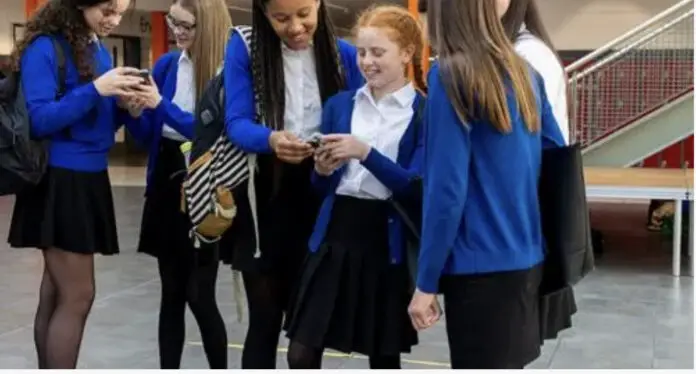Students attending schools that ban the use of phones throughout the school day aren’t necessarily experiencing better mental health and wellbeing, as the first worldwide study of its kind has found that just banning smartphones is not enough to tackle their negative impacts.
In a landmark study published today in Lancet Regional Health Europe, 1227 students from 30 schools across England provided data about smartphone and social media usage and a range of mental health, wellbeing and other outcomes. Among the schools that took part in the study, 20 had various forms of restrictive phone policies in place.
The study, which was funded by the National Institute for Health and Care Research (NIHR), found that there was no difference in outcomes for students who attend schools that ban smartphones throughout the school day
Smartphone bans in schools did lead to a slight decrease in students using phones (of approximately 40 minutes) and social media (approx. 30 minutes) in school, but the study suggests that the impact is small and that school policies banning recreational phone use didn’t lead to a meaningful reduction in the overall time spent using phones and social media.
Dr Victoria Goodyear, Associate Professor at the University of Birmingham and lead author of the study said:
“This is the first worldwide study of its kind to evaluate the impact of school phone policies on adolescent mental health and wellbeing, and other health and educational outcomes.
“We did find a link between more time spent on phones and social media and worse outcomes, with worse mental wellbeing and mental health outcomes, less physical activity and poorer sleep, lower educational attainment and a greater level of disruptive classroom behaviour.
“This suggests that reducing this time spent on phones is an important focus. But we need to do more than focus on schools alone, and consider phone use within and outside of school, across a whole day and the whole week.”







